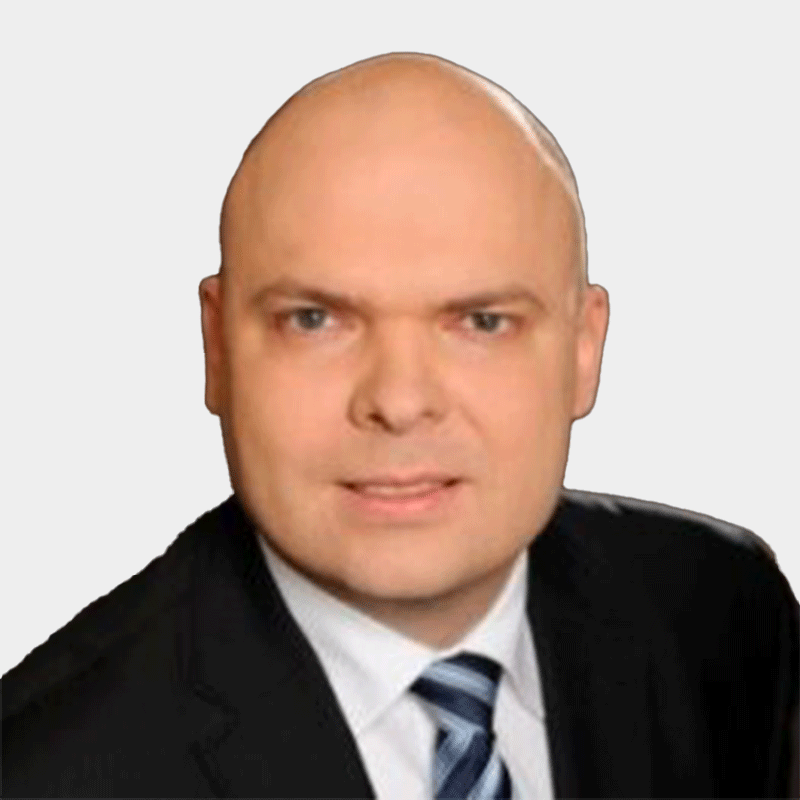The objective of the Energy and Resilience (E&R) program is to strengthen the resilience of the state and the Baltic Sea region by developing national and regional capacities to absorb, adapt to, and respond effectively to challenges in the areas of energy, critical infrastructure, public institutional performance, and information security.
On the one hand, the E&R program focuses on energy system resilience, understood as the ability of infrastructure, energy markets, regulatory frameworks, and governance mechanisms to function in a stable manner under conditions of geopolitical crises, hybrid pressure, sabotage, technical failures, and technological transformation.
On the other hand, the E&R program strives to advance a systemic approach to state and regional resilience in the institutional and informational domains, including countering disinformation and influence operations, or other forms of activity below the threshold of open conflict, as well as strengthening the capacity of public administration to maintain decision-making continuity and public trust.
The E&R program thus responds to the need for a long-term strategic vision for Poland and Europe, particularly in the Baltic and Nordic region, by integrating energy security, infrastructure modernisation, and institutional and informational resilience into a coherent analytical and operational framework.
PUBLICATIONS

Published: May 26, 2025
The incident involving the Falcon 9 rocket, whose fragments fell on Polish territory in February 2025, has become a symbol of the new challenges associated with the exploration of low Earth orbit. Although no one was harmed, the event highlighted that the rapid development of satellite technologies brings not only benefits but also significant risks. In a world where outer space is becoming a battleground for global economic and technological competition, Poland too must take a stance and actively participate in shaping new rules for its governance.

Published: April 28, 2025
The fight against climate disinformation has been recognised by the Ministry of Climate and Environment as one of the priorities of the Polish Presidency of the Council of the European Union. This topic will be discussed during the meeting of the EU Environment Council (ENVI), which will take place on April 28–29.

Published: April 11, 2025

Published: March 20, 2025
The publication by the Government of the Republic of Poland of a new Migration Strategy for 2025–2030 (hereinafter: Migration Strategy), adopted by a resolution of the Council of Ministers on October 15, 2024, not coincidentally came six months after the European Union adopted a set of 9 legal acts appearing under the name of the European Union Pact on Migration and Asylum. Poland opposed many of the Pact’s proposed legal acts at the stage of negotiations (2020–2023) and remains opposed to them after their adoption by a qualified majority in the EU Council.

Published: March 11, 2025
Plans to restart nuclear power plants scheduled for demolition have sparked a new trend in the US nuclear power industry. Technically sound, long-lived nuclear power plants are being officially decommissioned and then subjected to extensive safety analysis and modernization for their restart. The analysis and modernization work is financed in part by loans provided by federal authorities, and guarantees of success are provided by long-term contracts for the sale of electricity.

Published: March 6, 2025
Satoshi Nakamoto introduced a revolutionary payment system in 2008, allowing direct transactions between two parties without the need for intermediaries such as banks. Although the system has gained lasting popularity, not all of its creator’s assumptions have been preserved. The crypto market began to be monitored not only by central banks, but also by other regulators responsible for enforcing consumer rights and regulations to ensure financial market stability.
PUBLICATIONS

Published: June 30, 2025
Nuclear energy has long been a pillar of Sweden’s energy mix, although its significance has been diminishing due to divergent policies towards nuclear energy. In recent years, the debates regarding nuclear energy have intensified as the Swedish government, led by the Tidöpartierna coalition, has undertaken a bold reversal of the earlier nuclear phase-out policy. This analysis synthesises the historical, political, scientific, and economic dimensions of Sweden’s evolving nuclear landscape while highlighting the diverse views of political parties and the broader implications for energy policy.

Published: May 26, 2025
The incident involving the Falcon 9 rocket, whose fragments fell on Polish territory in February 2025, has become a symbol of the new challenges associated with the exploration of low Earth orbit. Although no one was harmed, the event highlighted that the rapid development of satellite technologies brings not only benefits but also significant risks. In a world where outer space is becoming a battleground for global economic and technological competition, Poland too must take a stance and actively participate in shaping new rules for its governance.

Published: May 8, 2025
On April 30, 2025, the governments of the United States and Ukraine signed the Agreement on the Establishment of a United States–Ukraine Reconstruction Investment Fund (“Agreement”). While publicly framed as a post-conflict development initiative, the Agreement should be more accurately understood as a layered instrument of geopolitical positioning and geoeconomic restructuring.

Published: April 11, 2025

Published: October 15, 2024
The European Commission estimates that 200,000 additional women will need to join the energy sector by 2050 to achieve basic gender balance, key to accelerating the clean energy transition.

Published: September 19, 2024
The Russian army’s attacks have severely damaged Ukraine’s energy infrastructure, leaving its citizens barely able to survive due to energy cuts and severely limited resources like running water.

Published: August 1, 2023
Moscow’s “war of choice” killed the Italo-Russian “romance” as the true colour of a disgruntled, terror state has tested the government and public. Still, local duginists are looking for a renewed occult influence to hijack the foreign policy and strategic security.

Published: May 31, 2023
In the 1990s, Central and Eastern European countries learned quickly that by combining their forces, they can be more successful in the Euro-Atlantic integration process. Perhaps, one of the most successful forms of informal regional cooperation was the Visegrad format.

Published: May 31, 2023
The recent announcement of the Czech Republic's ongoing military assistance to Ukraine highlights the growing importance of defence cooperation between the two countries.

Published: May 30, 2023
Russia's invasion of Ukraine has turned the global security environment upside down and made all countries think about the effectiveness of the existing security architecture. It is clear, that the process of revising the international order has already begun, and it is not excluded, that in the near future, we will witness the formation of new scientific, theoretical, or practical approaches to international relations and global politics.

Published: May 30, 2023
The path of the modern Ukrainian state towards democracy has been relatively short, but simultaneously full of struggle. The people of Ukraine had to take to the streets at least three times over the last 30 years to preserve democracy in the country: in 1990, 2004, and 2014. The last time when Ukrainian society stood up to the rise of authoritarian rule, Russia started its aggression against Ukraine by occupying the Crimean Peninsula and deploying its mercenaries in the Donetsk and Luhansk regions.

Published: March 24, 2023
Following the invasion of Ukraine by Russia, the impetus for a rapid clean energy transition has never been stronger. This position was confirmed by the European Commission’s (EC) REPowerEU initiative, a plan to phase out Europe’s dependence on fossil fuels before 2030 and to increase the resilience of the EU energy system.

Published: March 7, 2023
All societies, countries, organisations, and private individuals functioning in public information space are confronted with the challenge of disinformation.

Published: February 15, 2023
Natural gas is the cleanest fossil fuel; its CO2 emissions are about half of that of coal and just one-third of brown coal emissions.

Published: February 8, 2023
The Balkans, historically known as a region of great powers’ clashing interests, have seen a new wave of political instability in the past year. Hotspots include: tensions on Kosovo-Serbian border, government crisis in Montenegro and Bulgaria and, lastly, the long lasting institutional deadlock in Bosnia and Herzegovina that could cause a new outbreak of violence.

Published: July 5, 2022
With the current Russian aggression and virtually total blockage of the original fuel supply routes and the destruction of domestic fuel production capabilities, there is a need to reroute Ukrainian fuel supply chains via alternative routes.

Published: May 6, 2019
In any economic analysis of Nord Stream 2 the first question to be considered is the actual cost of the project. Over the last couple of years, a variety of publications have provided widely differing cost projections. The recent data suggest that Nord Stream 2 capital investment will reach €9,5-10 billion.

Published: November 15, 2017
How to succeed in providing national cybersecurity? This question tops policy agendas for many European governments – and rightly so. Israel is acknowledged as a global cybersecurity leader, encompassing strategy, defense, research, capacity building, technology, entrepreneurship and human capital.
NEWS
Data publikacji: May 15, 2025
On 13th May 2025 at the margins of the Informal Meeting of the Transport, Telecommunication and Energy Council held in Warsaw within the Polish Presidency in the European Council, Casimir Pulaski Foundation had the pleasure of hosting a roundtable with the attendance of Minister Dorin Junghietu, Ministry of Energy of Moldova and Secretary of State Krzysztof Bolesta, Polish Ministry of Climate and Environment.
Data publikacji: December 4, 2024
Political will in Western Europe and a merit-based approach are crucial to avoiding prolonged delay on Moldova’s path to the EU.
Data publikacji: February 12, 2026
Despite continuing to frame itself in great-power terms, Russia is gradually losing the capacity to perform the systemic functions that for decades made it an indispensable actor in the international order.
Data publikacji: February 10, 2026
Recent events in relation to Greenland struck a lot of controversy and provoked many reactions. The subject isn’t new as the first time Donald Trump publicly admitted that the US should try to acquire Greenland was 18th August 2019. That day, he confirmed he was considering an attempt to buy Greenland and added that it “would be strategically nice [for the USA to own]”.
Data publikacji: February 4, 2026
For Taiwan the last days of 2025 were characterised by yet another Chinese military drills around the island located 180-kilometers off the coast of mainland China. The drills have been conducted days after the announcement of $11bn U.S. weapons sale to Taiwan, one of the biggest weapon sales in Taiwan’s history.
Data publikacji: January 29, 2026
Over the past two decades, China has consolidated its presence in Latin America by exploiting the prolonged shift of U.S. strategic focus toward the Middle East. The resulting economic and infrastructure footprint in Washington’s immediate neighborhood is now seen as a strategic threat. The U.S. response - a new National Security Strategy and the intervention in Venezuela - reaffirmed the Western Hemisphere as non-negotiable to U.S. security.
Data publikacji: January 20, 2026
The establishment of the so-called Board of Peace, proposed by the President of the United States Donald Trump, should be understood not as an episode linked solely to Gaza, but as a symptom of a deeper transformation of the international order [1]. For the first time since 1945, a key system-shaping actor is not attempting to reform existing security institutions, but is instead deliberately initiating a mechanism that competes with them.
Data publikacji: January 15, 2026
Negotiating the Same War. Russia’s Continuum, America’s Cycles, and Why Momentum Still Isn’t Change?
At the close of 2025, as the war in Ukraine enters its fourth year in full scale form, international attention once again turned to Florida. On 28 December 2025, President Volodymyr Zelensky met with President Donald Trump at Mar a Lago.
Data publikacji: January 13, 2026
The Warsaw Security Forum officially opened the 2026 season with the WSF New Year’s Reception, bringing together senior representatives of the Polish government, diplomatic corps, armed forces, and long-standing partners of the Forum.
Data publikacji: January 12, 2026
In 2026, the Casimir Pulaski Foundation structures its advocacy efforts around five clearly defined priority areas. These are implemented through analytical publications, expert seminars, study visits, and the Warsaw Security Forum as an international platform for dialogue.
Data publikacji: January 8, 2026
On 8 January 2026, the administration of Donald Trump announced the initiation of procedures to withdraw the United States from a range of international organisations, conventions, and treaties deemed contrary to U.S. national interests. While formally framed as an administrative and legal review of existing commitments, the decision carries significance far beyond its procedural form.
Data publikacji: January 8, 2026
As public debate in Poland increasingly focuses on the fact that Warsaw has been invited to participate in the G20 summit in 2026, an essential part of the context risks being overlooked.
Data publikacji: January 5, 2026
The Venezuelan moment: intervention without arbitration
Data publikacji: December 23, 2025
Following the illegal occupation of the Crimean Peninsula in 2014, the Ukrainian navy, which had been underfunded and neglected for decades, found itself on the brink of collapse. Most Ukrainian ships lost their combat capability or were seized by the aggressors, with their crews surrendering as a result of the Russian operation.
Data publikacji: December 19, 2025
Prompted by Russia’s failed attempt to subjugate Kyiv and deepening internal problems, the members of this axis have nonetheless eschewed the establishment of a formal military alliance. Instead, they are engaged in an episodic, escalating and deepening military, economic, and technological cooperation.
Data publikacji: December 17, 2025
One year ago, a small yellow brochure prepared by the Swedish Civil Contingencies Agency (Myndigheten för samhällsskydd och beredskap; from January 1.01.2026 - Swedish Defence and Resilience Agency, Myndigheten för civilt försvar) circulated widely across Western media and social networks. In Case of Crisis or War opens with a striking message: “To all residents of Sweden, We live in uncertain times. Armed conflicts are currently being waged in our corner of the world. Terrorism, cyber attacks, and disinformation campaigns are being used to undermine and influence us. To resist these threats, we must stand united. If Sweden is attacked, everyone must do their part to defend Sweden’s independence – and our democracy.” [
Data publikacji: December 16, 2025
It is our pleasure to inform you that the Warsaw Security Forum (WSF) participated in the 2025 edition of the Doha Forum, one of the world’s leading platforms for global dialogue on security, diplomacy, and international cooperation.
Data publikacji: December 16, 2025
On 16 December, an expert meeting devoted to Military Mobility was held at the headquarters of the Casimir Pulaski Foundation. The roundtable discussion was jointly organised by the Foundation, the National Security Industrial Club and GLOBSEC.
Data publikacji: December 12, 2025
The strategy put forward by the Trump administration appears to be strongly ideologically driven. It explicitly criticises the previous administration, as well as the governing elites to date, accusing them of having misdefined US interests.
Data publikacji: October 23, 2025
On October 21, 2025, Sanae Takaichi, a conservative politician representing the ruling Liberal Democratic Party (LDP), became the new Prime Minister of Japan. The new prime minister faces a number of challenges related to the country’s political and economic situation, as well as the stabilization of her own party.
Data publikacji: October 15, 2025
Following the publication of U.S. and Ukraine-Europe’s proposed frameworks for resolving the Russia–Ukraine conflict in April 2025, and under pressure from Washington on both Kyiv and Moscow, the two sides agreed to launch direct negotiations in Istanbul on 15 May.
Data publikacji: October 10, 2025
On 4 August 2025, an international group of scientists, technologists, diplomats, and international law experts issued the Potsdam Call on Autonomous Weapon Systems.
Team & Experts
Karolina Pawlik
Senior Analyst in the Energy and Resilience Program
Maciej Filip Bukowski
Director of the Energy and Resilience Program















